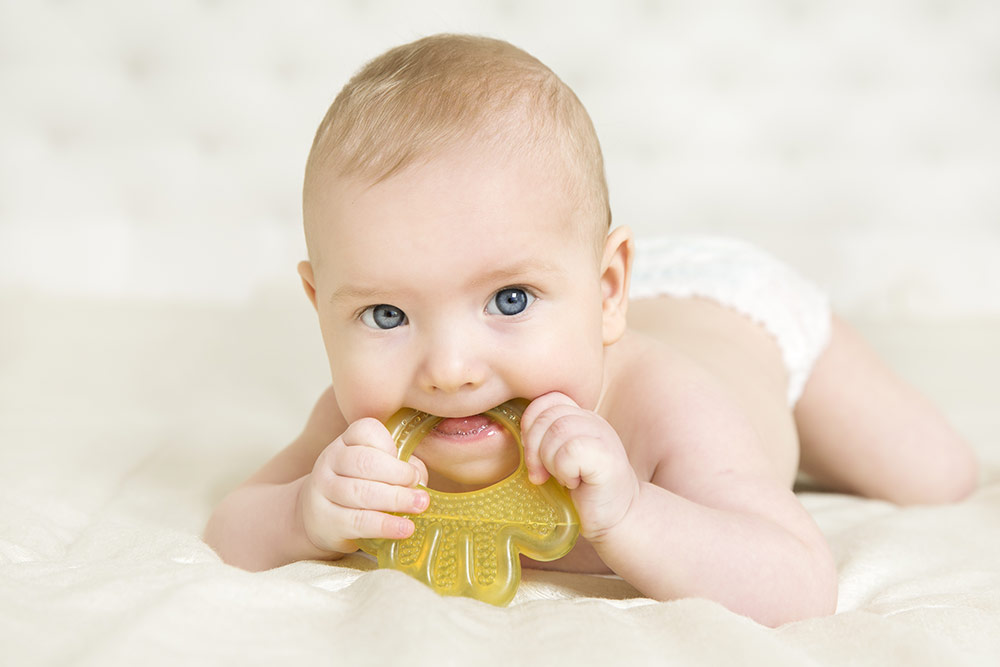Baby Teething: Signs and Treatment
The first tooth is an important milestone in your baby’s life, but unfortunately, teething can cause considerable pain and discomfort. You and your baby don’t have to endure sleepless nights. Understanding the common teething symptoms and ways you can help will ease the discomfort for your little one.
What Are the Signs of Teething?
Most babies start teething between four and seven months of age, and most toddlers have all their baby teeth by age 3. The two bottom front teeth typically come in first, followed by the two upper front teeth. You may notice little bumps on your baby’s gums when the time comes.
Symptoms of teething aren’t the same for every baby. Signs of teething include red, swollen, and tender gums, fussiness and irritability, excessive drooling, a slight increase in temperature but no fever, a desire to bite or chew on hard objects, loss of appetite, and interruption in the sleeping patterns.
Teething can be uncomfortable, but it shouldn’t cause illness. If your baby has diarrhea, vomiting, high fever, rash, cough, or a runny nose, these aren’t normal signs of teething and will warrant a call to your child’s pediatrician.
How Can You Help?
There are ways you can help soothe and comfort your teething baby. Placing something cold in your baby’s mouth can help provide the needed relief. Try a chilled (not frozen) pacifier or a refrigerated teething toy or ring. Massaging your infant’s gums with a clean finger or a moistened gauze pad can also help. Teething babies love to chew, so an unsweetened teething cracker can provide comfort. If your child is especially cranky, talk to your child’s pediatrician or pediatric dentist about pain medication.
What Treatments Should You Avoid?
It’s important to keep your baby safe while overcoming the teething blues. Avoid the use of over-the-counter homeopathic remedies as well as teething medications that contain benzocaine or lidocaine because these pain relievers can be harmful to your little one. Moreover, steer away from teething necklaces, bracelets, or anklets because they often pose a risk of choking, strangulation, or injury.
Keeping Your Child’s Smile Clean and Healthy
Even before those tiny chompers come in, we recommend cleaning your baby’s gums at least twice a day using a soft infant toothbrush or a clean washcloth. Once the first baby tooth erupts, start brushing daily using a small, soft-bristled brush and a smear of baby toothpaste about the size of a grain of rice. When your child learns to spit at around age 3, use a pea-sized dollop of fluoride toothpaste. Make sure to supervise your child while brushing.
The American Academy of Pediatric Dentistry recommends scheduling your baby’s first dental visit after the first tooth arrives and no later than the first birthday. We, at Smile Explorers Pediatric Dentistry, will provide your child with quality preventive care and will help establish a proper oral hygiene regimen to set the stage for a lifetime of healthy smiles.
Quality Pediatric Dentistry in Glendale, AZ
Contact Smile Explorers Pediatric Dentistry to learn more about caring for your baby’s oral health. Our kid-friendly team is committed to delivering quality, gentle care in a comfortable and positive environment. We look forward to working alongside you to ensure your little one’s smile is off to a great start! Call us and schedule your appointment today!



